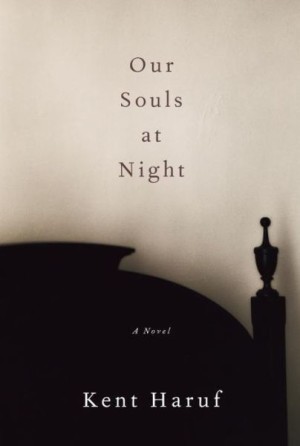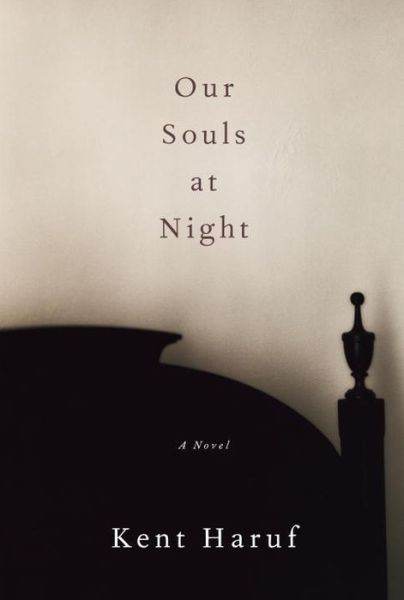 Our Souls at Night
Our Souls at Night
By Kent Haruf
ISBN: 978-1-101-87589-6
Knopf: 2015
$24.00; 179pp.
Reviewed by Eduardo Rey Brummel
What if two seniors who have each lost their spouse spend their nights sleeping together? That is, “sleeping together” in the literal sense, not the euphemistic and adulterous sense that’s far more commonplace. Such a simple suggestion, yet off-kilter enough to cause one to pause before deciding yay or nay.
“No, not sex,” Addie Moore assures Louis Waters, in the opening of Our Souls at Night. “I’m not looking at it that way. I’m talking about getting through the night. And lying warm in bed, companionably. Lying down in bed together and you staying the night. The nights are the worst. Don’t you think?”
After some contemplation, and with no small amount of uncertainty, Louis takes Addie up on her offer; and what happens due to this agreement between consenting adults is what comprises our story.
Holt, Colorado, where Haruf’s novel takes place, is the usual small town with the usual busybodies, their eyes and ears too big for their own good. Not that both Addie and Louis don’t already have their individual histories in Holt. And to be sure, the local folks do suspect there’s “something more” happening between Addie and Louis, which the pair addresses by intentionally ignoring the issue.
[InContentAdTwo]
When Addie’s grandson is left with her for an extended stay while his dad goes through another crisis of the moment, it changes the dynamics. At first, Louis becomes even more cautious and conservative – perhaps because being so is in his nature, but maybe also due to his aforementioned history. Yet in short time, he and Addie grow close to the boy, bringing him through his own momentary darkness, and cease acting so clandestine about their nights together. That is, until his dad returns to pick him back up and to also give Addie and Louis a load of grief for sharing the same bed while his son slept just down the hall.
However, with your spouse having gone on ahead of you, the changed years ahead stretching emptily, is it any mystery how the days become unceasing night? How it happens that “nights are the worse”? Here we have a story about two such lonely souls seeking a way of “getting through the night.”
This is Kent Haruf writing about the Eastern Plains of Colorado. The dialog is plain and spare, very much like the landscape, but often relaying subject matters which are neither plain nor spare. Also, some of the stillest utterances still wield power enough to knock the breath from your lungs; to cause your heart itself to have the wind knocked out of it. And still other lines cause that same breathless heart to break wide open and commence to gushing. Repeatedly, we are both broken and stitched back together – and quite often on the exact same page.
With this final novel, Kent Haruf has left us a gift. And he’s left me wondering, What if? What if this was another point along the upper trajectory of his writing, rather than its endpoint? The richness and craft of Haruf’s writing and storytelling continued deepening. He still had miles to go. But now he sleeps.
Eduardo Rey Brummel will miss Kent Haruf as a writer and as “one of us locals.”



